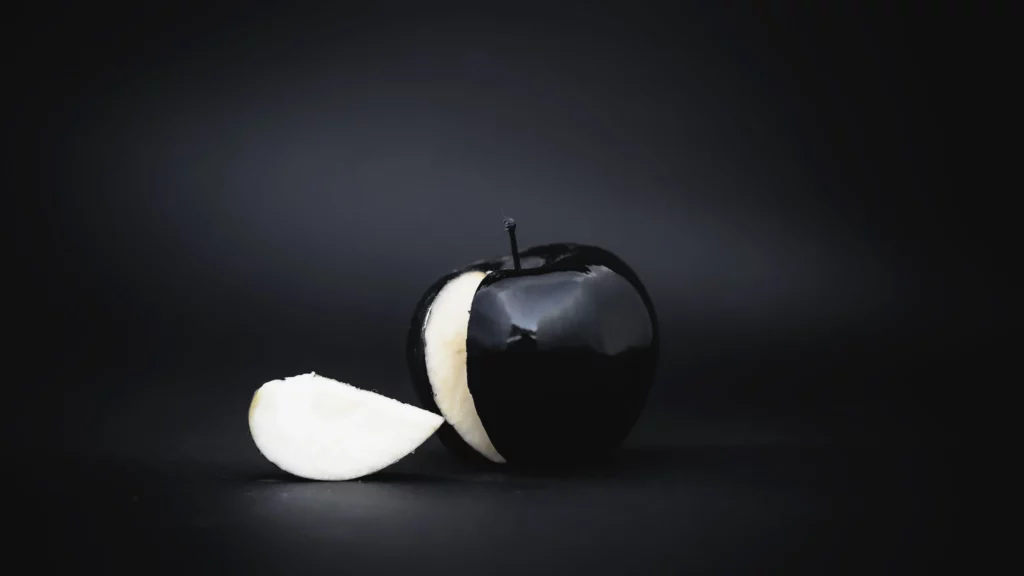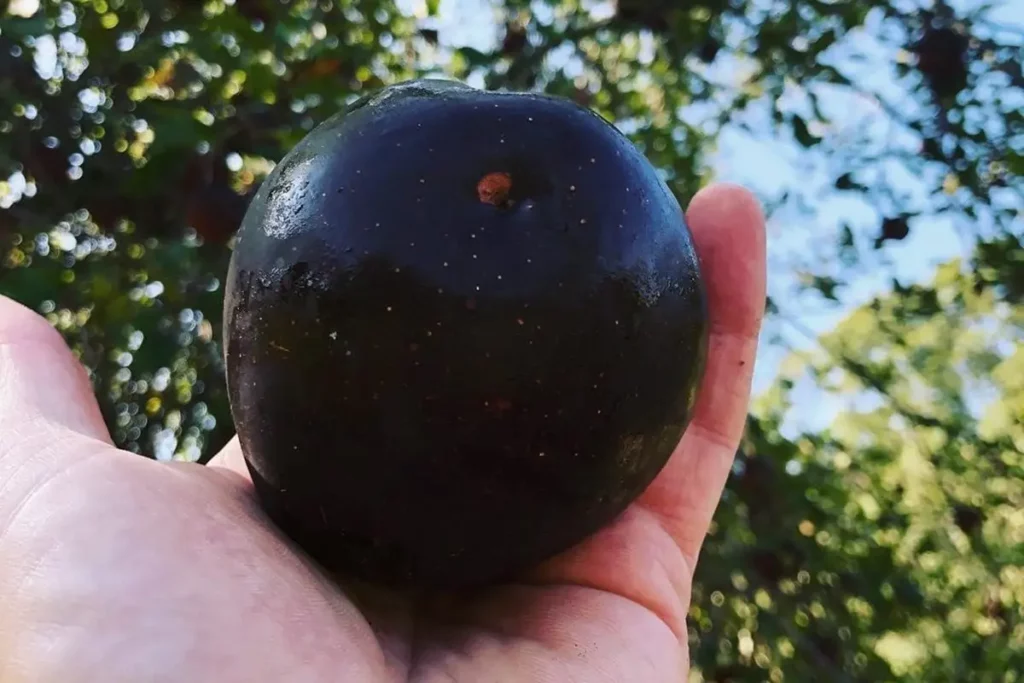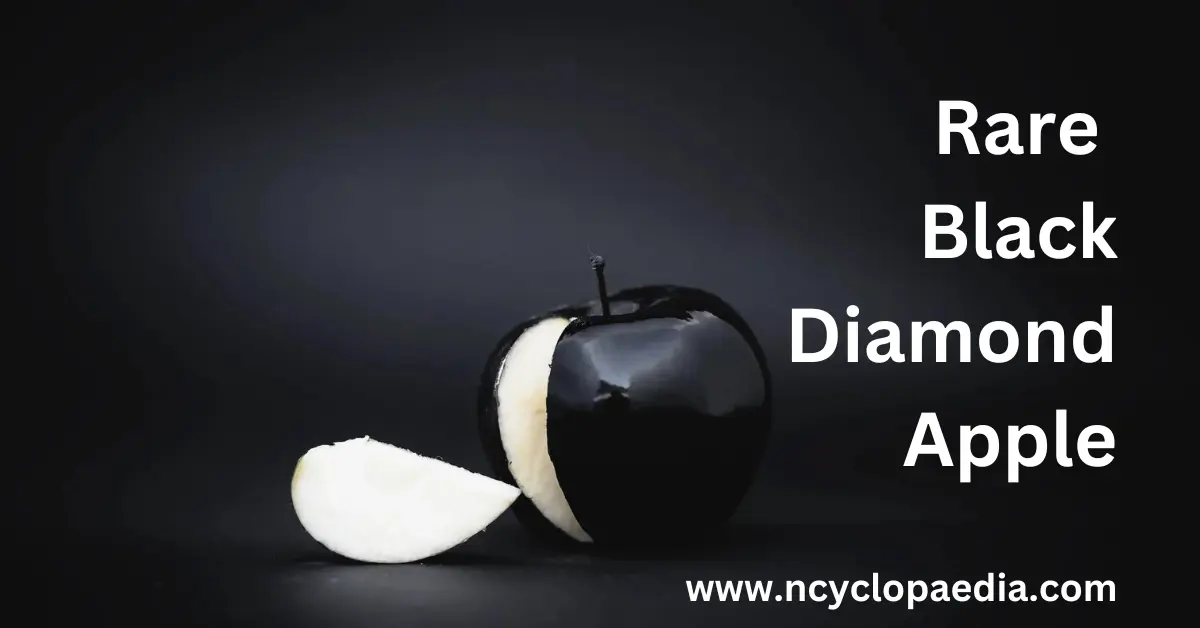The Rare Black Dimond Apple, Cost, Benefits and Cultivation
Many people associate apples with shades of red, green, and yellow, but have you ever heard of nearly black apples? The Black Diamond Apple is a variety that remains elusive to most, a fruit so rare it requires dedicated efforts to find. These apples are exceptionally scarce, grown only in remote locations, making them one of the hardest apple varieties to come by.

Black Diamond Apple Taste
Each apple variety possesses its unique flavor profile, and the Black Diamond Apple is no exception. Beneath its dark exterior, these apples reveal a crisp, bright white interior that offers a delightful taste. They are notably sweeter than most other apple varieties, and packed with natural glucose, resulting in a candy-like sweetness. The Black Diamond Apple is a rare offshoot of the more common Chinese red delicious apple.
The Mystique of Tibet
The cultivation of Black Diamond Apples is primarily concentrated in the remote Tibetan region of Nyingchi. These apple trees are known for their exceptional rarity and challenges in maintenance, as they take a lengthy eight years to mature.
Many farmers are deterred by the difficulty of caring for these trees, which has contributed to their limited cultivation. Although the exact history of these apples remains unclear, their popularity has surged in the digital age, sparking interest in their cultivation and discovery.
Health Benefits of Black Diamond Apple
Contrary to the assumption that their dark color might suggest toxicity, Black Diamond Apples obtain their deep purple hue from their environment, rather than any harmful compounds. These apples are safe to eat raw and are celebrated for their delightful flavor. Their natural sweetness makes them an excellent addition to various recipes, offering versatility from fruit plates to delectable pies.
When apples are naturally sweet, they lend themselves to a wide range of culinary applications, from savory dishes to sweet desserts and even spicy chutneys. The health benefits of apples, including improved heart health, assistance for those with diabetes, and strengthened immune systems, further highlight the value of these sweet gems.

Black Diamond Apple Cost
Acquiring a Black Diamond Apple tree can be a challenging endeavor, as they are difficult to locate and cultivate. To start, one can purchase seeds for planting in their own yard, although these seeds are not commonly available from major online retailers.
The rarity of the Black Diamond Apple drives up the cost of the seeds, with prices often exceeding $15 for just a few. If you prefer to enjoy the fruit itself, these apples can be found in select high-end produce stores in Asia, where a single apple can cost anywhere from $7 to $20.
Cultivating Black Diamond Apples
Successful cultivation of Black Diamond Apples requires a climate similar to their native Tibetan habitat. They thrive in temperatures that seldom exceed 80 degrees Fahrenheit and rarely drop below 30 degrees Fahrenheit. These trees can grow anywhere from 12 to 25 feet in height, necessitating adequate spacing to promote their health. Adequate sunlight and access to water are essential for these apple trees, and having multiple trees or planting them near other apple varieties can enhance pollination.
Caring for Black Diamond Apple trees aligns with standard apple tree care practices. They should be pruned during late winter or early spring to remove damaged branches and prepare for new growth. Since the pests in North America differ from those in Tibet, diligent monitoring is necessary to protect against potential threats. Various pesticides can be employed to preserve the tree’s health.
Growing Black Diamond Apples is a rewarding adventure, but it demands diligence, a suitable environment, and an appreciation for the exquisite fruits they yield. These trees not only add a touch of elegance to your landscape but also promise a future of delectable, sweet apples.

